Keywords: Kristina Keneally
-
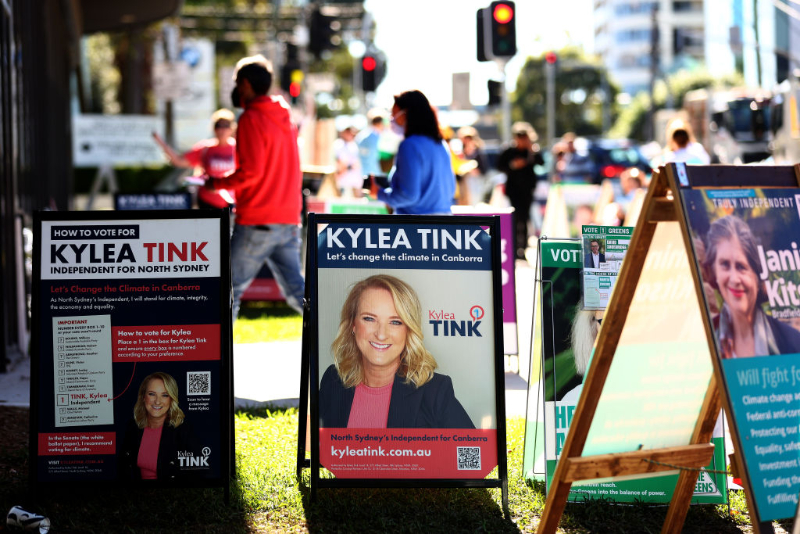
AUSTRALIA
- Binoy Kampmark
- 24 May 2022
11 Comments
The centre of the political system did not so much hold as desert. The vote was a furious, determined and tenacious shout from the estranged centre, a shivering of the timbers. The calibre of individuals elected — many from professions, many with public service outside the traditional party hierarchy of patronage and promotion, and most, women — has not been previously seen in this country’s politics.
READ MORE 
-
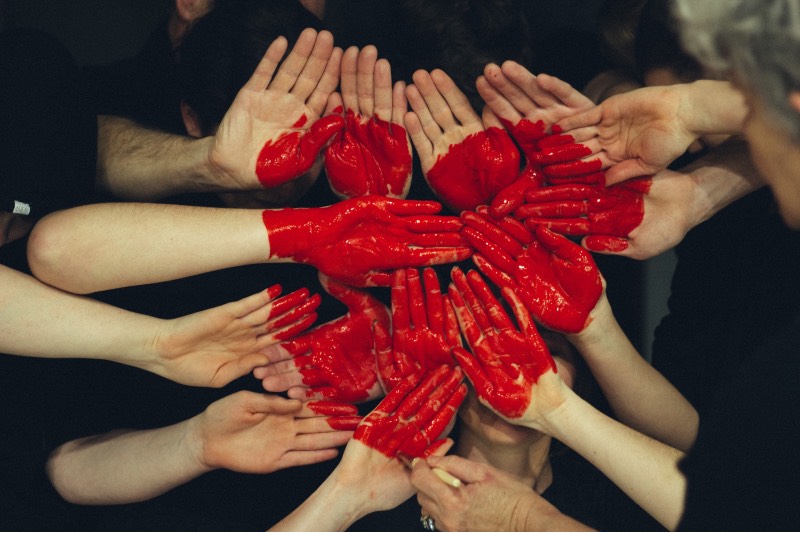
FAITH DOING JUSTICE
- Anthony Albanese
- 23 February 2021
17 Comments
What we have is a rare opportunity — in all likelihood a once-in-a-lifetime chance — to shape the future and emerge from the pandemic as a better, fairer nation.
READ MORE 
-
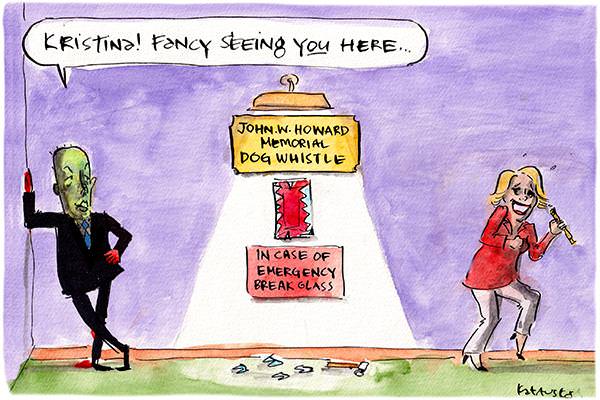
CARTOON
- Fiona Katauskas
- 05 May 2020
READ MORE 
-
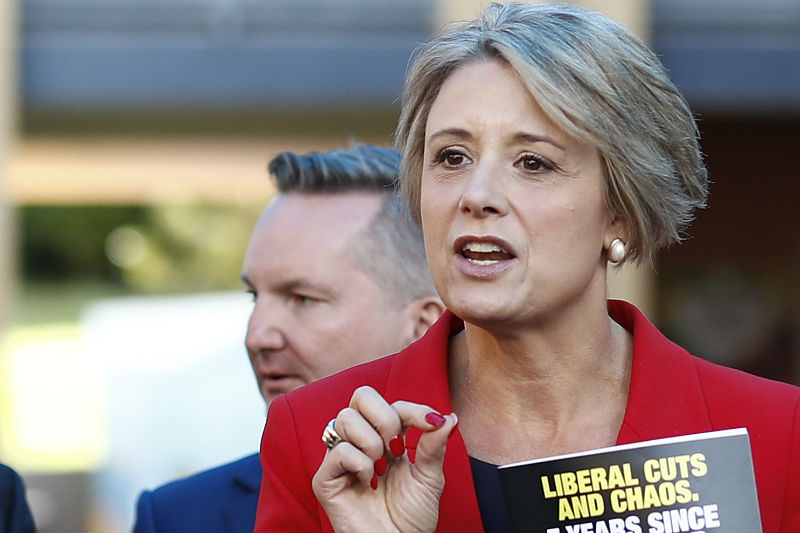
AUSTRALIA
- Carolina Gottardo and Nishadh Rego
- 06 June 2019
17 Comments
The recent federal election showed us that refugees and people seeking asylum do not need to be instrumentalised for votes. Perhaps refugee policymaking could be separated from politics. Perhaps it could be evidence-based and humane. Alas, the prevailing frames and politics of border protection quickly came to the fore post-election.
READ MORE 
-
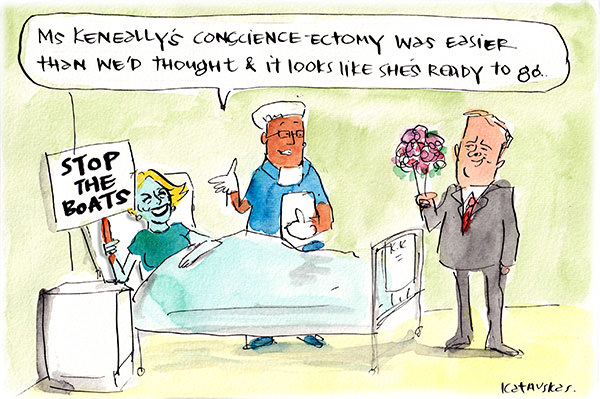
CARTOON
- Fiona Katauskas
- 04 June 2019
1 Comment
READ MORE 
-
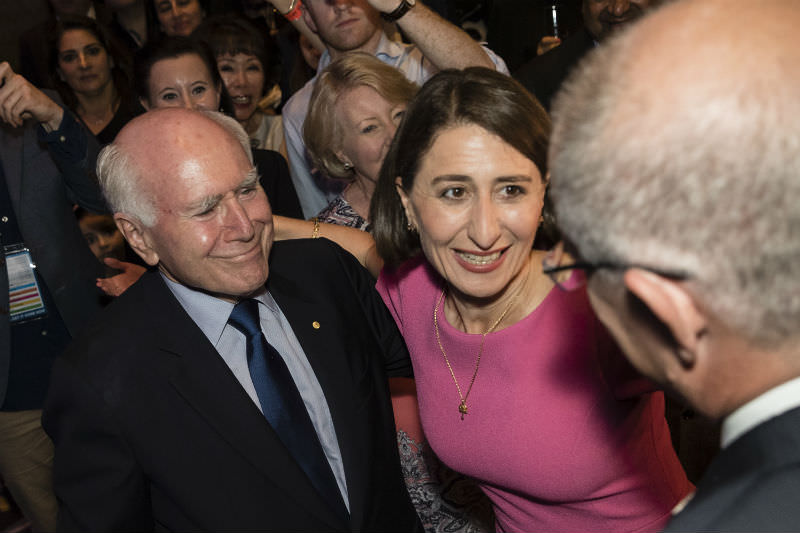
AUSTRALIA
- Eliza Berlage
- 29 March 2019
3 Comments
Headlines celebrating Gladys Berejiklian as the first female elected as Premier of NSW exemplify how far we have come and still have to go with women in politics. That women are held to a different, higher standard than men is evident in all facets of society, but in the political sphere it is a test of worthiness.
READ MORE 
-
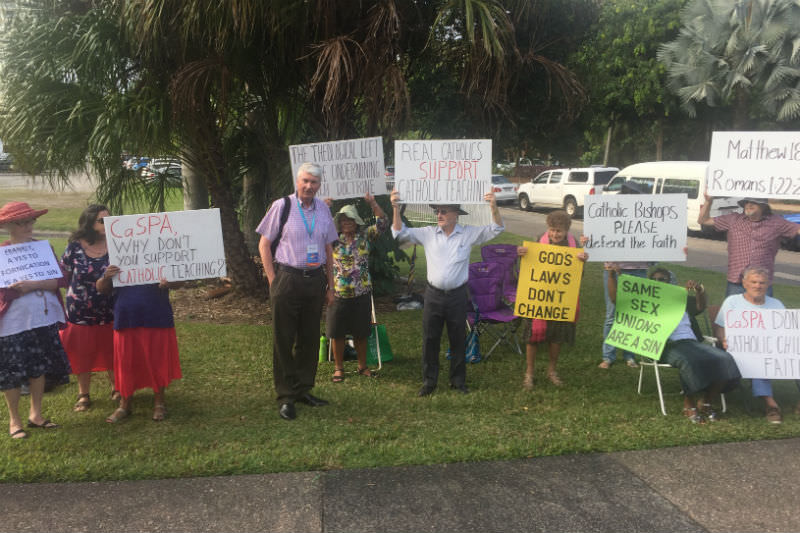
RELIGION
- Frank Brennan
- 16 July 2018
3 Comments
'Kristina Keneally was unapologetic in putting the place of women in our church front and centre. And so we should.' Tropical and Topical, 2018 National Catholic Principals' Conference, Cairns Convention Centre, 16 July 2018.
READ MORE
-
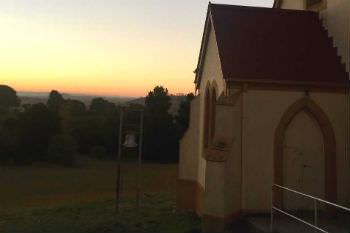
RELIGION
- Frank Brennan
- 03 April 2018
2 Comments
'What would it mean for any of us to be wishing Steve Smith and David Warner a happy and blessed Easter?' Easter Homily by Fr Frank Brennan SJ at the churches of Adamaniby and Nimmitabel, Easter 2018.
READ MORE
-
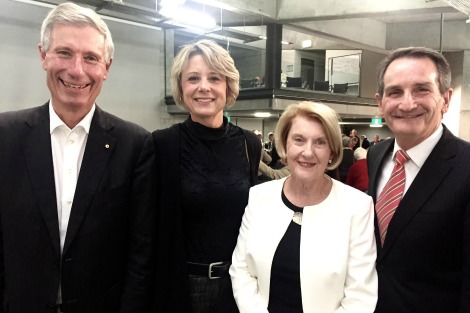
RELIGION
- John Warhurst
- 23 May 2017
54 Comments
Catholics have a proud record of exercising their democratic rights within Australian democracy as voters, members of political parties and lobby groups, and as elected representatives. But within their own church they have been taught to leave their democratic rights at the door. Now is the time to challenge that norm in parishes, dioceses and the wider church. In responding to the royal commission the church needs an infusion of democratic values, including transparency and accountability.
READ MORE 
-

- Kristina Keneally
- 04 June 2015
12 Comments
'As a legislator and a Catholic, I often felt gratitude for Frank Brennan's ambassadorship from the republic of conscience. I found the need to weave, this need to take 'data points' from many places and form my conscience. I regarded Frank as a bit of a hero.' Kristina Keneally launches Fr Frank Brennan SJ's book Amplifying That Still, Small Voice at Our Lady of the Way Parish, North Sydney, 2 June 2015.
READ MORE
-

- Maureen O'Brien
- 11 May 2015
An eye-opener in the recent ABC TV Compass program on women in church leadership was how willing two leading Australian Catholic women, Kristina Keneally and Sr Trish Madigan, were in using the 'ordination' word and seeing women's ordination as an essential part of equality in church governance. All indications are that Pope Francis doesn't share their view and nowhere more so than when he wrote in his Apostolic Exhortation, The Joy of the Gospel, that 'The reservation of the priesthood to males ... is not a question open to discussion.'
READ MORE
-

EUREKA STREET TV
- Peter Kirkwood
- 01 October 2014
34 Comments
For two weeks from this Sunday, the much anticipated Synod on the Family will take place at the Vatican. Those attending include around 150 bishops, a number of lay experts and 14 married couples. An interested observer from afar is former NSW Labor premier Kristina Keneally, theologically trained and one of the most prominent lay Catholics in Australia.
READ MORE 